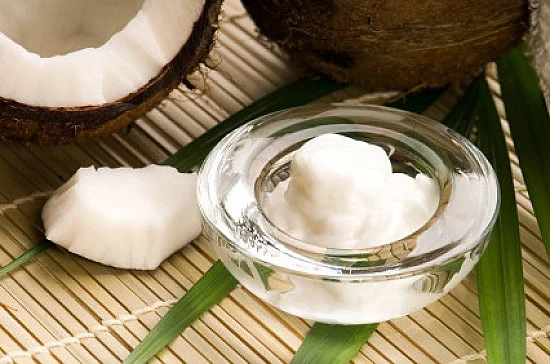Is Coconut Oil Really a Miracle Cure for High Cholesterol?
Coconut oil has gained significant popularity in recent years as a natural remedy for high cholesterol. Many people are turning to this tropical oil as an alternative to traditional cholesterol-lowering medications, seeking a more holistic approach to managing their cholesterol levels.
The growing interest in coconut oil can be attributed to its potential health benefits and the belief that it is a healthier option compared to other oils. However, it is important to understand the science behind coconut oil and its effects on cholesterol before incorporating it into your diet.
Understanding High Cholesterol and Its Risks
Cholesterol is a waxy substance that is found in the blood and is essential for the body’s normal functioning. However, when there is an excessive amount of cholesterol in the blood, it can build up in the arteries and form plaques. These plaques can narrow the arteries, reducing blood flow and increasing the risk of heart disease and stroke.
High cholesterol is often caused by a combination of factors, including genetics, diet, and lifestyle choices. It is important to note that not all cholesterol is bad. There are two types of cholesterol: low-density lipoprotein (LDL) cholesterol, often referred to as “bad” cholesterol, and high-density lipoprotein (HDL) cholesterol, known as “good” cholesterol. High levels of LDL cholesterol are associated with an increased risk of heart disease, while high levels of HDL cholesterol are considered protective.
The Nutritional Composition of Coconut Oil
Coconut oil is derived from the meat of mature coconuts and is composed mainly of saturated fats. In fact, coconut oil contains one of the highest levels of saturated fat among all edible oils. Saturated fats are known to raise LDL cholesterol levels in the blood, which is why they have long been associated with an increased risk of heart disease.
However, coconut oil also contains medium-chain triglycerides (MCTs), which are a type of fatty acid that is metabolized differently than other types of fats. MCTs are quickly absorbed by the body and can be used as a source of energy rather than being stored as fat. Some studies suggest that MCTs may have a neutral or even beneficial effect on cholesterol levels.
The Link Between Coconut Oil and Cholesterol Levels
The potential link between coconut oil consumption and cholesterol levels has been a topic of debate among health professionals and researchers. Some proponents of coconut oil argue that its high levels of MCTs can increase HDL cholesterol levels and improve the overall cholesterol profile. However, others caution that the high saturated fat content in coconut oil can raise LDL cholesterol levels and increase the risk of heart disease.
It is important to note that the effects of coconut oil on cholesterol levels may vary from person to person. Factors such as genetics, overall diet, and lifestyle choices can influence how an individual responds to coconut oil consumption. Additionally, the amount and frequency of coconut oil consumed may also play a role in its effects on cholesterol.
Studies on Coconut Oil and Cholesterol: What Do They Say?
Several studies have been conducted to investigate the effects of coconut oil on cholesterol levels. However, the results have been conflicting, making it difficult to draw definitive conclusions.
Some studies have suggested that coconut oil can increase HDL cholesterol levels, which is considered beneficial for heart health. For example, a study published in the journal Lipids found that consuming virgin coconut oil increased HDL cholesterol levels in women compared to soybean oil.
On the other hand, other studies have shown that coconut oil can raise LDL cholesterol levels. A study published in the journal Circulation found that coconut oil increased LDL cholesterol levels more than unsaturated oils such as olive oil and safflower oil.
It is worth noting that many of these studies have limitations, such as small sample sizes or short durations. More research is needed to fully understand the effects of coconut oil on cholesterol levels and its overall impact on heart health.
The Role of Saturated Fats in Cholesterol Management

Saturated fats have long been associated with an increased risk of heart disease due to their ability to raise LDL cholesterol levels. The American Heart Association recommends limiting saturated fat intake to no more than 5-6% of total daily calories.
While coconut oil is high in saturated fat, it is important to consider the overall dietary context. A diet that is high in saturated fat from various sources, such as red meat and processed foods, is more likely to have negative effects on cholesterol levels and heart health. However, if coconut oil is consumed in moderation as part of a balanced diet that is low in other sources of saturated fat, its impact on cholesterol levels may be less significant.
Coconut Oil vs. Other Oils for Cholesterol Control
When it comes to cholesterol control, coconut oil is often compared to other oils that are commonly used for their potential health benefits. Olive oil and canola oil are two examples of oils that are often recommended for their heart-healthy properties.
Olive oil is rich in monounsaturated fats, which have been shown to improve cholesterol levels and reduce the risk of heart disease. Canola oil, on the other hand, contains a good balance of monounsaturated fats and polyunsaturated fats, which can also have positive effects on cholesterol levels.
Compared to these oils, coconut oil has a higher saturated fat content. While some studies suggest that coconut oil may have certain benefits for cholesterol levels, it is generally recommended to choose oils that are lower in saturated fat for heart health.
How Much Coconut Oil Should You Consume for Cholesterol Management?
If you decide to incorporate coconut oil into your diet for cholesterol management, it is important to do so in moderation. The American Heart Association recommends limiting saturated fat intake to no more than 5-6% of total daily calories. This means that if you consume 2,000 calories per day, you should aim for no more than 13 grams of saturated fat.
It is also important to consider the overall balance of fats in your diet. While coconut oil may have certain benefits, it is still important to include a variety of fats in your diet, such as monounsaturated fats and polyunsaturated fats, which have been shown to have positive effects on cholesterol levels.
Other Health Benefits of Coconut Oil
While the effects of coconut oil on cholesterol levels are still being debated, there are other potential health benefits associated with its consumption. Coconut oil contains lauric acid, which has antimicrobial properties and may help support a healthy immune system. Additionally, coconut oil has been shown to improve digestion and promote gut health.
Coconut oil can also be used topically for its moisturizing and antibacterial properties. It is commonly used in skincare products and hair treatments due to its ability to hydrate and nourish the skin and hair.
Potential Risks and Side Effects of Coconut Oil
While coconut oil may have potential health benefits, it is important to be aware of the potential risks and side effects associated with its consumption.
One of the main concerns with coconut oil is its high saturated fat content. Consuming too much saturated fat can increase LDL cholesterol levels and increase the risk of heart disease. Additionally, coconut oil is calorie-dense, so consuming large amounts of it can contribute to weight gain if not balanced with an overall healthy diet and lifestyle.
Some individuals may also experience digestive issues when consuming coconut oil, such as diarrhea or stomach discomfort. It is important to listen to your body and adjust your intake accordingly if you experience any adverse effects.
Is Coconut Oil a Miracle Cure for High Cholesterol?
In conclusion, the effectiveness of coconut oil as a natural remedy for high cholesterol is still a topic of debate among health professionals and researchers. While some studies suggest that coconut oil may have certain benefits for cholesterol levels, others caution that its high saturated fat content can have negative effects on heart health.
It is important to approach coconut oil consumption with caution and in moderation. If you are considering incorporating coconut oil into your diet for cholesterol management, it is recommended to do so as part of a balanced diet that is low in other sources of saturated fat. Additionally, it is important to consult with a healthcare professional before making any dietary changes, especially if you have existing health conditions or are taking medications.
Overall, while coconut oil may have potential health benefits, it is not a miracle cure for high cholesterol. It is important to focus on overall lifestyle changes, such as maintaining a healthy diet, exercising regularly, and managing stress, to effectively manage cholesterol levels and reduce the risk of heart disease.
Originally posted 2024-03-01 10:45:27.


